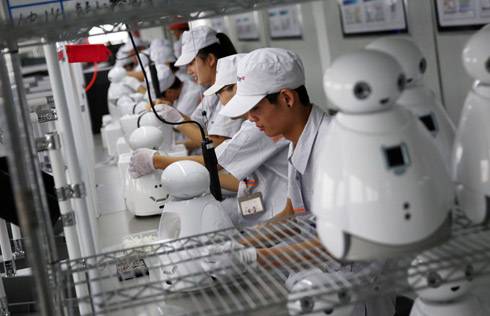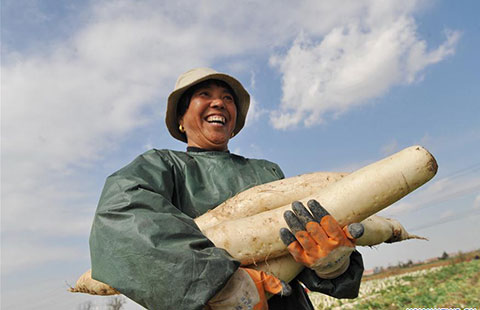Tax benefits to boost real economy
Agriculture sector, small businesses will receive preferential treatment
Tax incentives will be expanded in China to reduce costs for agriculture-related and small-scale businesses, encouraging bank lending to support real economy development, according to a joint announcement on Monday by the Ministry of Finance and the State Administration of Taxation.
Small and micro-sized enterprises, with monthly sales of 20,000 to 30,000 yuan ($3,050-$4,575), will be exempted from value-added tax from the beginning of next year until the end of 2020, the announcement said.
During the same period, those enterprises that borrow money from financial institutions need not pay the stamp tax, which usually costs 0.005 percent of the loan contracts.
In addition, financial institutions' value-added tax on their interest income from small loans to peasant households, small and micro-sized businesses, will also be removed from December this year to the end of 2019, said the announcement.
Data from the China Banking Regulatory Commission showed that by the end of June, the total outstanding loans of financial institutions to the agricultural sector reached 30 trillion yuan, a year-on-year growth of 9.9 percent. Outstanding loans to small and micro-sized enterprises stood at 28.6 trillion yuan, up by 14.7 percent from a year earlier.
Taking account of the current one-year benchmark lending rate of 4.35 percent, about 150 billion yuan or more of banks' value-added tax will be reduced per year.
These tax-cut policies, which reduce costs for small-scale businesses and the agricultural sector, reflect the government's goal of leading financial capital efficiently to better serve the development of the real economy, which has been highlighted in General Secretary Xi Jinping's report at the 19th National Congress of the Communist Party of China, said Feng Qiaobin, a professor with the Chinese Academy of Governance.
Finance Minister Xiao Jie recently wrote an article that described a road map to reform the current tax system into a "modern" style.
The reform will include launching a real estate tax, which requires a special law to be introduced first. The tax will be charged based on assessed values of commercial and industrial properties, as well as personal residential housing.
"Tax on the real estate construction and trading part is being considered to be reduced," according to Xiao.
The individual income tax scheme will be improved by optimizing the tax rate structure and expanding the pretax deduction subjects.
More subjects of local tax will be added into the system, including a broader pilot program that shifts water resource fees into relevant tax, and to facilitate the tax on urban construction and maintenance projects, Xiao said.
























